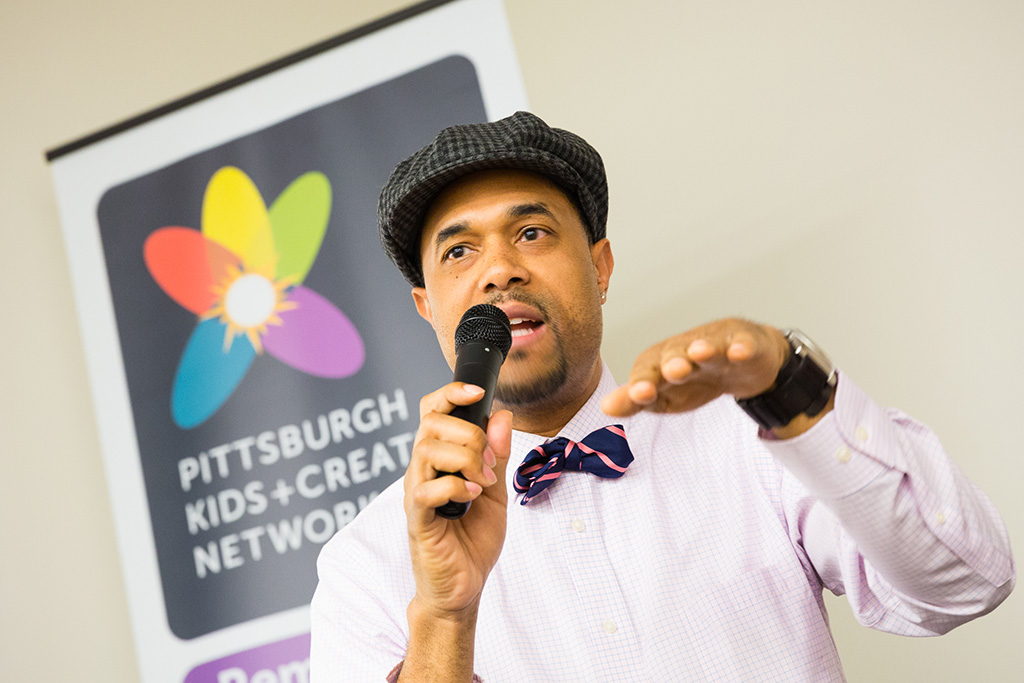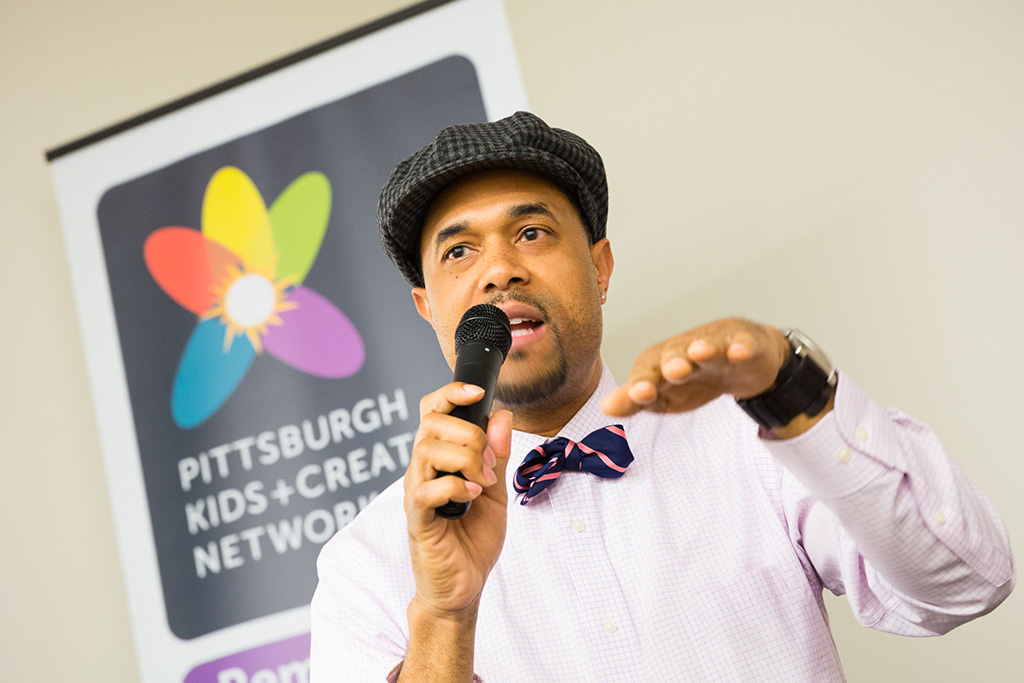The tenets of arts-based learning parallel those of Remake Learning: Both support creativity, problem-solving, critical thinking, innovation, communication, and collaboration. The overlaps are many, and it’s clear that the arts must play an essential role in any effort to reimagine the way we teach and learn.

Someone else who knows about the intersectionality of art, learning, and life? And is a multi-talented artist and educator to boot? Emmai Alaquiva.
Emmai is an Emmy Award-winning film director, composer, and mentor, and he is a longtime member of our network.
Adding to his list of accolades and accomplishments: He’s the CEO of Ya Momz House, Inc., a digital media agency, as well as the founder and Executive Director of Hip Hop On L.O.C.K., an arts education and mentoring program for K-12 youth that uses hip hop music, culture, and dance to teach life-long skills in leadership, organization, economics, and more.
After his recent appearance on the Heinz Endowments‘ podcast Stronger Than This—where he talked about the role of art in coping with COVID-19 and capturing the Black Lives Matter movement—Emmai shared a little more with us about the intersections of art, education, and our current moment in history. You can listen to his full episode of Stronger Than This here.
There’s a lot happening in the country and the world right now—the ongoing COVID-19 pandemic, economic strife, racial uprisings. How do you think art can help both educators and young people deal with the related stress and trauma?
In the words of Paul Roberson: “Artists are the gatekeepers of truth.” If it wasn’t for books, poetry, music, movies, painting, and even culinary arts, we would be in a very deep place rooted in chaos, confusion, and fragmented unrest. Idled time is often an opportunity to explore the creative crevices that house the next big thing that can change the direction of your life. This is what this intersection of time (in American history) is doing for me.
How do you think we can build on this moment to create more opportunities for social and racial justice in arts education?
One of the ways to build on this moment is to stop having conversations that lead to other conversations, and have conversations that lead to action. We need to restructure the ways that foundations and organizations orbit the needs of artists. One way to do this is through stronger resources, that are touchable. For too many years, the support systems for artists and organizations have catered to the analytical side of the brain, when in fact, they need to cater more to the artistic side of the brain. Just imagine if August Wilson got a grant to write a book, Mary Lou Williams got a grant to build a recording studio on Webster Ave., or Teenie Harris got a grant to teach kids how to take photography of their neighborhoods in order to engage in self-expression. Where would we be right now?
During COVID-19, it is my hope that foundations and organizations alike really begin to understand the impact that art has on a global scale. I can go on and on, but the bottom line is: We need to step out of the normal “square” to step into the abnormal “circle” of change.
We love keeping up with your work at Hip Hop on L.O.C.K. What’s been happening there?
Hip Hop on L.O.C.K. is undergoing an entirely new branding refresh as we speak—complete with a new website, TV commercial, billboards, podcast, and social media campaign. It’s set to launch by September 1. We’ve been around since 2007 and are really looking forward to launching our next, completely new phase.
Thinking big picture, how do you think the Remake Learning network can be good stewards of engaging, relevant, and equitable arts education?
Provide more opportunities to the Deaf, Hard of Hearing, and those with disabilities. This sector of outstanding individuals is often overlooked and left out of the room. Silence is no longer an option, and the same ol’ “club” will not be accepted. But, that doesn’t mean “diversity and inclusion” should be the two words that become America’s newest digital PB&J phrase—-something that just populates the brochures printed at the local shop across the street. Let us truly rise up and be risky, embrace change, and build bridges we can cross over. We are great as individuals, but we are always better together.
